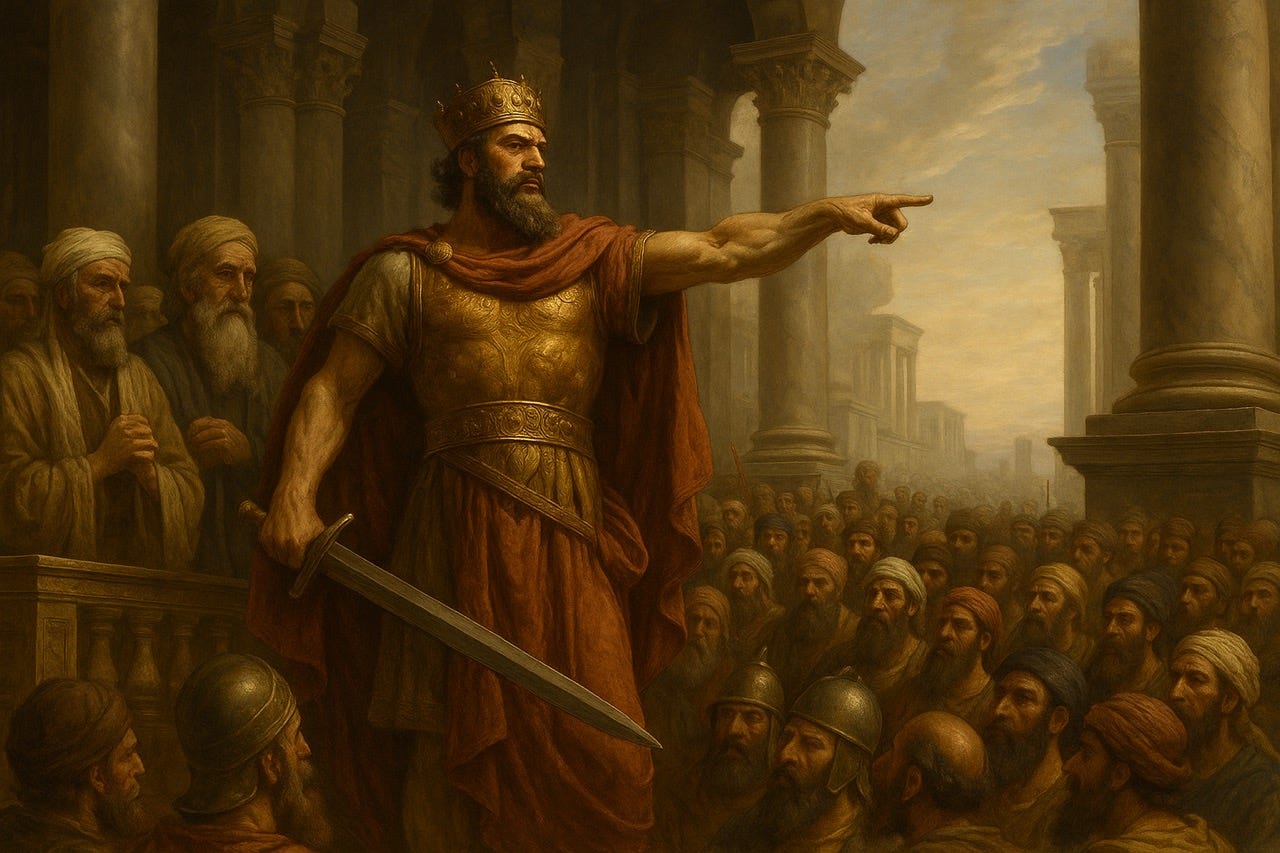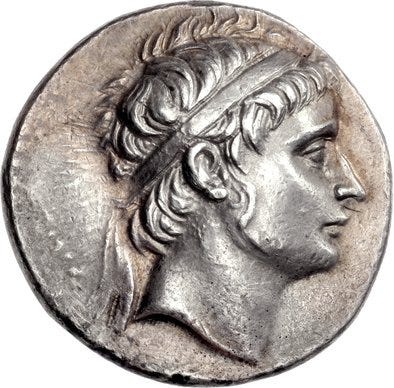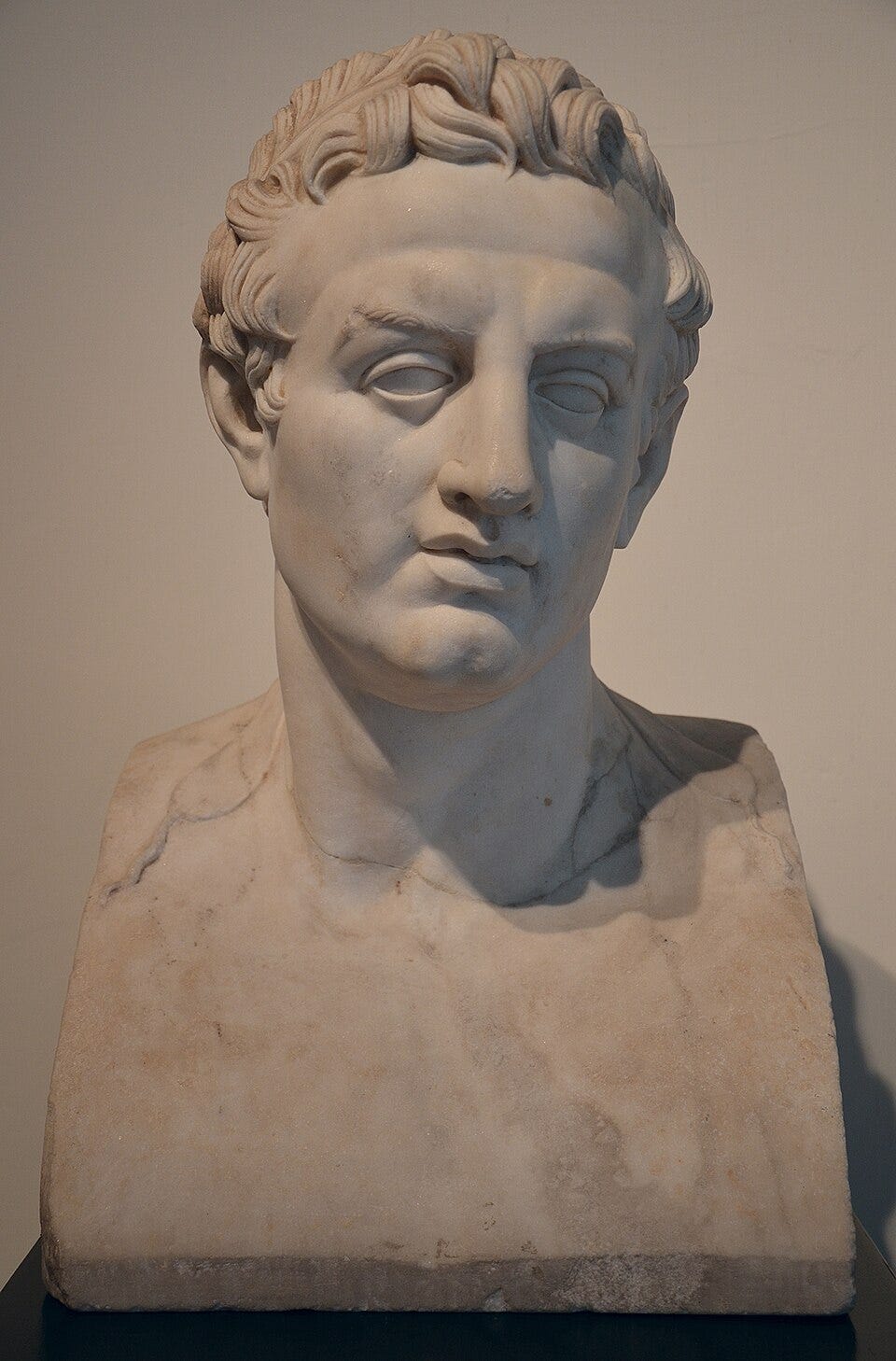Diving into Daniel - An Avenger with Great Strength
Daniel 11:7-9 - The advantage goes to Ptolemy III Euergetes, at least for now.
“But one of the descendants of her line will arise in his place, and he will come against their army and enter the fortress of the king of the North, and he will deal with them and display great strength. Also their gods with their metal images and their precious vessels of silver and gold he will take into captivity to Egypt, and he on his part will refrain from attacking the king of the North for some years. Then the latter will enter the realm of the king of the South, but will return to his own land.”
Daniel 11:7-9 NASB1995
So who is this descendant of the line of Berenice? The best overview of the historical figures and actions that make up this passage is from Precept Austin. Here is the background for verse 7; the timeframe is 246-241 B.C.:
But one of the descendants of her line will arise in his place - Refers to Berenice's royal line, specifically her brother Ptolemy III Euergetes who arose in place of his father Ptolemy II Philadelphus and presumably as an act of revenge came against and conquered the King of the North in a war (See Third Syrian War) which lasted from 246 to 241BC, during which Ptolemy occupied Antioch (the capital of the Seleucid kingdom) and even reached Babylon. In exchange for a peace in 241BC, Ptolemy was awarded new territories on the northern coast of Syria, including the port of Antioch. The Ptolemaic kingdom was at the height of its power.
The King of the North - Seleucus II Callinicus (246-225BC)
And he will deal with them - Ptolemy III Euergetes not only conquered Seleucus II Callinicus in the Third Syrian War but he also killed Laodice.
And display great strength - The Treasury of Scripture Knowledge records that "Ptolemy Euergetes, who, to avenge his sister's death, marched with a great army against Callinicus, took all Asia from mount Taurus to India, and returned to Egypt with an immense booty."
So war, betrayal and murder is answered with revenge and war, specifically the Third Syrian War. Ptolemy III Euergetes received territories in the northern kingdom and also scooped up a huge plunder of idol images, gold, and silver to take back to Egypt.
Coin with the image of Seleucus II Callinicus - Attributed to Classical Numismatic Group (see license below)
More from Precept Austin, for verse 8:
Their metal images...precious vessels ("vessels of their desire") - After conquering the fortress of the King of the North, Ptolemy III Euergetes returned to Egypt with 4000 talents of gold and 40,000 talents of silver (Est value - $160 million) and 2500 idols and idolatrous vessels. In ancient times when a nation was utterly defeated and subjugated, that nations "gods" were taken as booty. (cf, Is 46:1, 2; Jer 48:7; 49:3; Hos 10:5). Euergetes means "benefactor", which is what the Egyptian populace called him as a result of his returning treasures which had been stolen by the Persian King Cambyses in 524BC.
Egypt - The center of the southern Ptolemaic kingdom is mentioned by name but the northern kingdom never mentions Syria, probably because it did not exist at the time of this prophecy.
As an aside, it is interesting to note that the times when these prophecies were being fulfilled, were during the 400 year "silence" when God did not speak between the close of the Old Testament and the onset of the New Testament.
Refrain from attacking - (See brief note that alludes to this phase of the reign of Ptolemy III Euergetes) This predicts that Ptolemy Euergetes would not attack Syria for a number of years.
The aside in this commentary is interesting to note: This prophecy is fulfilled in that time of “silence” from God after Malachi (written about 430 B.C.) and before the advent of the New Testament Gospels. Apparently, the treasures that were taken back to Egypt were stolen from there to begin with in 524 B.C.
Bust of Ptolemy III Euergetes - Naples National Archaeological Museum, Carole Raddato (see license below)
Here is the commentary for verse 9:
New Living Translation - Later the king of the north will invade the realm of the king of the south but will soon return to his own land.
Then the latter - This is a reference to the King of the North, Seleucus II Callinicus, who invaded Egypt and came against the King of the South in 240BC but was forced to retreat and return to his own land, soundly beaten. As predicted in the following passages (Da 11:10ff) however, the sons of Seleucus II Callinicus proved more successful in the great conflict against Egypt.
Note that Palestine was once again in the center between these two warring kingdoms.
The secular source Wikipedia has this remark "This war is cryptically alluded to in Daniel 11:7-9."
So the “Beautiful Land” is in-between these two warring factions. The King of the North goes to Egypt but then retreated and returned to his own land. Note that the uber-secular Wikipedia states that this third Syrian war is “cryptically” alluded to in Daniel 11:7-9. Doesn’t seem so cryptic to me, but maybe that’s because God is guiding me into historical insights into the prophecies of Daniel.
My next devotional examines Daniel 11:11-13 - The sons of the King of the North gain ascendancy.
Heaven on Wheels Daily Prayer:
Dear Lord - I’m learning more about the history of the time from the last prophet in the Old Testament until the time of the advent of Christ. This history fulfilled prophecies that You gave to Daniel. Thank you for the insights! Amen.
Scripture quotations taken from the (NASB®) New American Standard Bible®, Copyright © 1960, 1971, 1977, 1995 by The Lockman Foundation. Used by permission. All rights reserved. lockman.org
Precept Austin was accessed on 5/24/2025 to review commentary for Daniel 11:7-9.
The coin bearing the image of Seleucus II Callinicus is licensed under this Creative Commons License for the Classical Numismatic Group; no alterations or changes were made:
https://creativecommons.org/licenses/by-sa/3.0/deed.en
The photo of the bust of Ptolemy III Euergetes in the Naples National Museum is licensed under this Creative Commons license; no alterations or changes were made:





